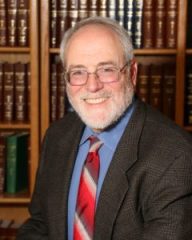Nelson G. Page graduated from Georgetown University Law Center cum laude in 1978, where he was on the Board of Editors of the Georgetown Law Journal. He clerked for the Honorable Warren Mathews of the Alaska Supreme Court and then joined the firm of Burr, Pease and Kurtz, where he practiced in Anchorage for 38 years. Nelson’s practice included regular representation of professionals in malpractice litigation.
He also served on the Alaska Bar Association Ethics Committee from 1994 to 2012, including 6 years as chair. From 2013 to 2016 he served on the Bar Association’s Board of Governors, and was its president in 2015 and 2016. In 2017 he became Bar Counsel for the State of Alaska, a position he held until 2019. In that capacity he handled over 2,000 ethics inquiries from Alaska lawyers and others. He has also served as adjunct faculty at the University of Alaska in Anchorage

